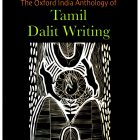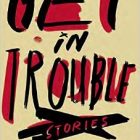Creepy Pasta and Michael Helm’s AFTER JAMES
Part ghost story and part detective novel, After James by Michael Helm is a novel of ideas descended from creepy pasta, or urban legends from the Internet.
It’s not that After James terrifies the reader the way a horror movie might, but that the reader’s own suspicion of each character is unsettling, as if when a page is turned the characters shuffle and test your attention. As if when you close the book, they curl their fingers off the page and rearrange words you remember in a different order.
The story is told in three perspectives: from an ex-neuroscientist turned whistleblower who helped develop a creativity drug gone wrong, a graduate school dropout studying an Internet poet, and a virologist whose identity is stolen by a conceptual artist. As a result, After James is reminiscent of Mark Z. Danielewski’s House of Leaves. In part one, Ali, the ex-neuroscientist, tells a story through different mediums and questionable facts. After finding a listing online to house sit for a couple she’s never met, Ali arrives at the rural Canadian home and finds a recording from Denise, the house’s owner. In the recording, Denise relays a story about a missing neighbor who her husband, Stefan, believes doesn’t exist. Ali senses the practice in Denise’s voice, and the fact that the story might be fictional. This, paired with the creeping sense that Ali’s perception is also sometimes skewed (she has a kind of drug dependency), suggests that no one is quite telling the truth or perceiving it correctly.
Like Danielewski’s work, After James is almost impossible to read at night, much like the creepy pasta stories it undoubtedly draws from—this inspiration is especially apparent in the second part of the novel, which focuses on an Internet poet who writes about murder with an almost supernatural knowledge of private details. Some argue that House of Leaves is a retelling (or cutting and pasting, if you will) of the creepy pasta story known as Ted the Caver, which follows an expedition of men into a cave that grows in depth and becomes more evil as the story goes on; in the same vein, After James could be a story curated on a Reddit feed in the middle of the night. It’s the kind of story you read with feet tucked under the covers, toes far from the edge of the bed.
What truly makes After James a ghost story is not that a missing neighbor appears as a form in the fireplace, or that a protagonist experiences visions, but that the book is haunted by its own characters. The capacity to believe in ghosts requires the experience of believing in evil, or having experienced unchecked appetites that exist outside of empathy, as Ali thinks while reading The Turn of the Screw in one scene. Whether it’s the violent kill scene at a rural Canadian home or the literal self-shattering experience of a stolen identity, each of the three characters experience something sinister. It is perhaps their own aggressive appetites that make them ghosts, and which brings the book to its fulfilling end.



